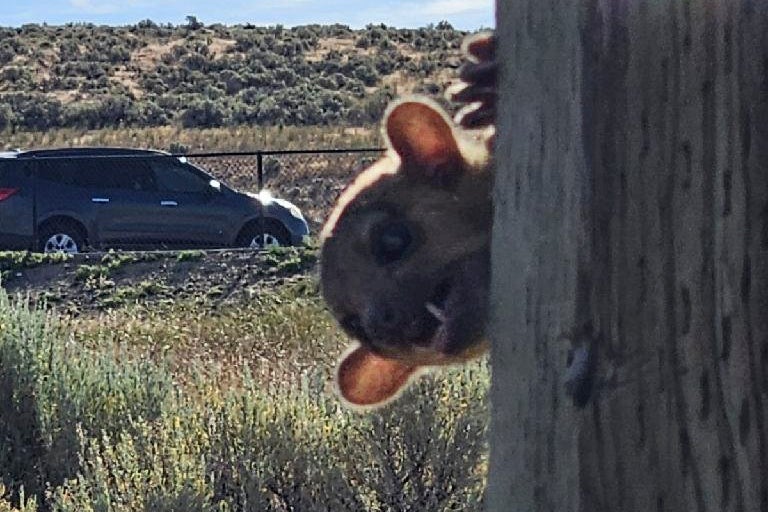Kinkajou - a rainforest animal - is rescued from a dusty rest stop in Washington state
Kinkajous are carnivores that live in tropical rainforests from southern Mexico through Brazil

Your support helps us to tell the story
From reproductive rights to climate change to Big Tech, The Independent is on the ground when the story is developing. Whether it's investigating the financials of Elon Musk's pro-Trump PAC or producing our latest documentary, 'The A Word', which shines a light on the American women fighting for reproductive rights, we know how important it is to parse out the facts from the messaging.
At such a critical moment in US history, we need reporters on the ground. Your donation allows us to keep sending journalists to speak to both sides of the story.
The Independent is trusted by Americans across the entire political spectrum. And unlike many other quality news outlets, we choose not to lock Americans out of our reporting and analysis with paywalls. We believe quality journalism should be available to everyone, paid for by those who can afford it.
Your support makes all the difference.Why did the kinkajou cross the road? And what's a kinkajou, anyway?
One of the mammals — which look like a cross between a monkey and a tiny bear — was found far from its normal rainforest habitat this week at a highway rest stop amid the rolling sagebrush plains of central Washington state, officials say.
Kinkajous have prehensile tails, and this one was spotted Sunday climbing on a tall wooden post along Interstate 82 southeast of Yakima, the state Department of Transportation said in a post on X.
“We don’t know if it was dropped off or escaped,” the post said. The animal was rescued by the state Fish and Wildlife Department.
Kinkajous are carnivores that live in tropical rainforests from southern Mexico through Brazil, according to the Point Defiance Zoo & Aquarium in Tacoma, where this little creature was taken to live temporarily.
With sandy yellow fur, round ears and big dark eyes, they are capable of grasping objects and are often mistakenly called primates, the zoo said.
“Despite their cuteness, kinkajous do not make good pets,” the zoo said.
This particular kinkajou is being quarantined in the zoo's hospital to ensure it's not carrying any diseases and it will undergo a comprehensive wellness exam this week, officials said.
Kinkajous are not endangered but are hunted for their fur, and the illegal exotic pet trade-threatens their population, according to the zoo.